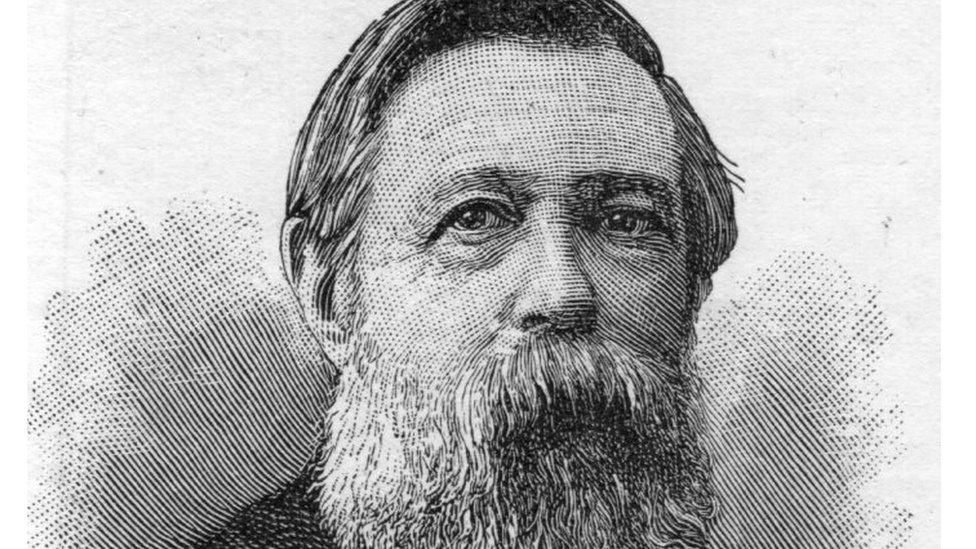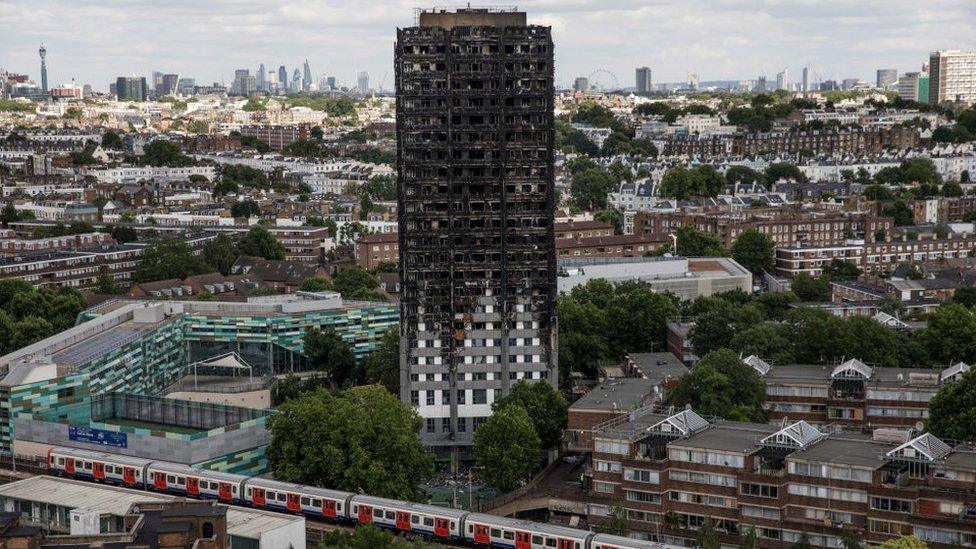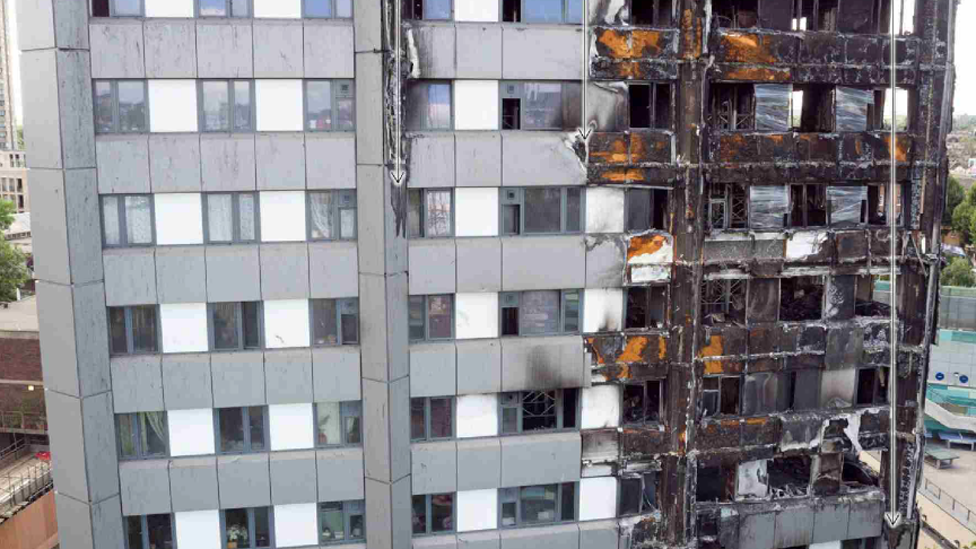Grenfell fire: McDonnell murder claim 'disgraceful' - Hammond
- Published
Chancellor Philip Hammond criticises John McDonnell over Grenfell "social murder" comments
Chancellor Phillip Hammond has called comments made by Labour's John McDonnell about the Grenfell fire tragedy "disgraceful".
The shadow chancellor told the BBC's Andrew Marr he stood by his claim that victims of the disaster in west London were "murdered by political decisions".
He said "social murder" had occurred and "people should be accountable".
But Mr Hammond told the programme there was "not a shred of evidence to support that" accusation.
At least 80 people are believed to have been killed in the tower block fire in north Kensington on 14 June.
Grenfell fire was social murder, says McDonnell
Asked if the politicians who sanctioned cuts were murderers, Mr McDonnell said he did not "resile" from that view.
He cited cuts to local government, to the fire service and the housing crisis.
"There's a long history in this country of the concept of social murder, where decisions are made with no regard to consequences of that, and as a result of that, people have suffered," he told Andrew Marr.
"That's what's happened here, and I'm angry."
He previously blamed the decision to "view housing as only for financial speculation".

A brief history lesson in socialism

German socialist, Friedrich Engels
John McDonnell's turn of phrase is one that was actually coined more than 170 years ago.
It was in the 19th Century that philosopher Friedrich Engels sought to prove that society commits "social murder" in his book Condition of the Working-Class in England in 1844.
"When society places hundreds of proletarians in such a position that they inevitably meet a too early and an unnatural death... When it deprives thousands of the necessaries of life... forces them, through the strong arm of the law, to remain in such conditions until that death ensues... its deed is murder," he wrote of Victorian England.
Engels went on to found Marxist theory with fellow German philosopher, Karl Marx. Mr McDonnell recently said there was much to learn from reading Marx's study of capitalism, Das Kapital.
Speaking ahead of June's general election, he said he was going to be the "first socialist in the tradition of the Labour Party".

- Published14 July 2017

- Published29 October 2019
